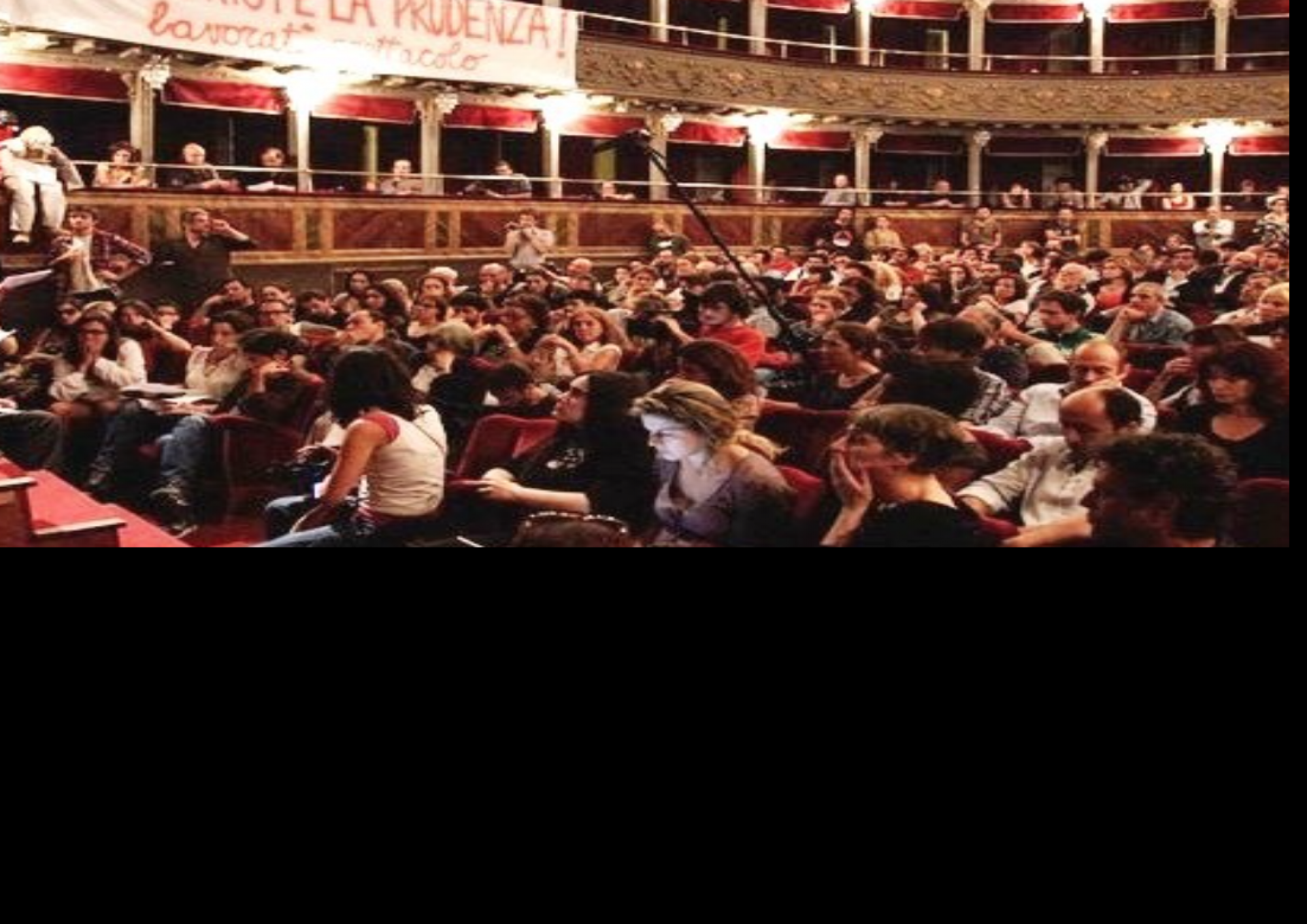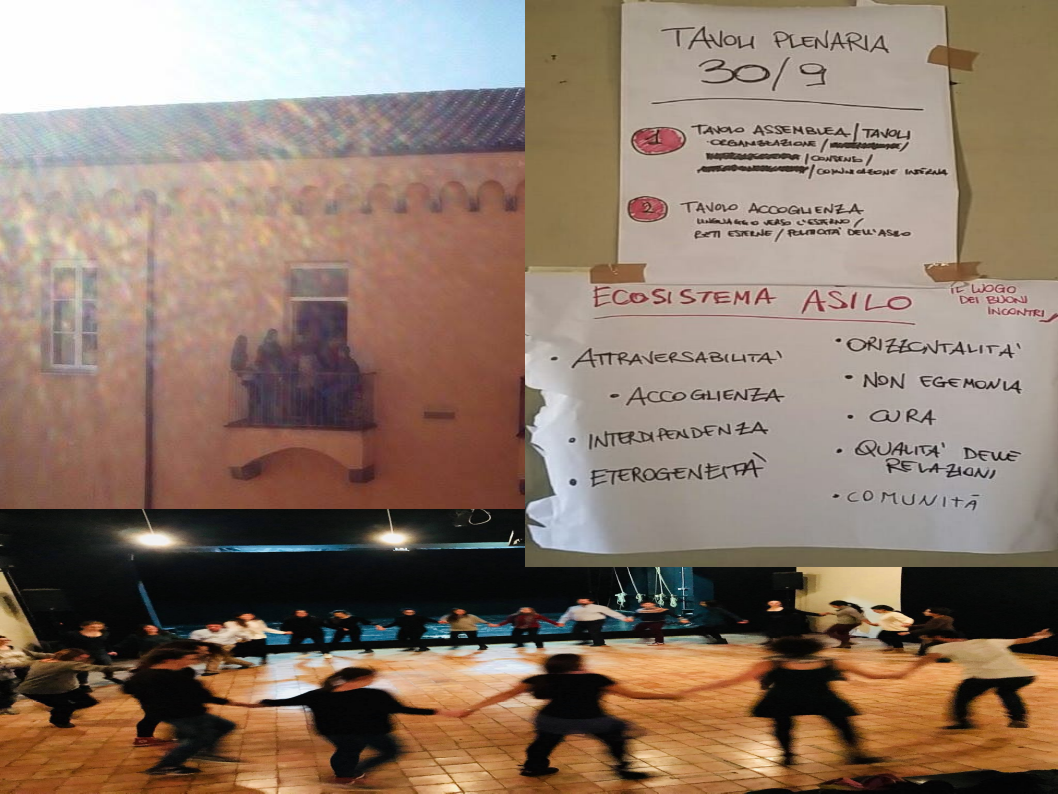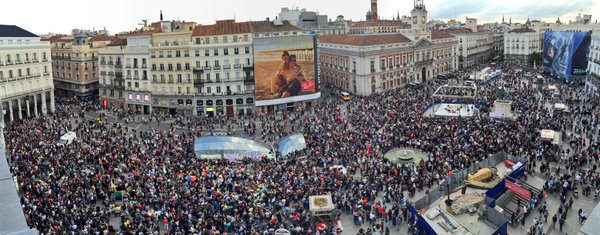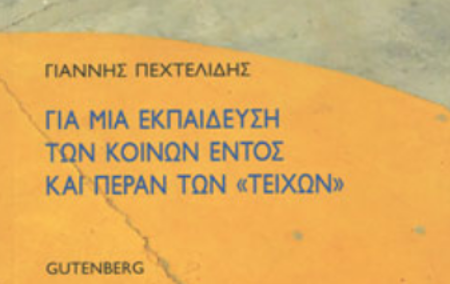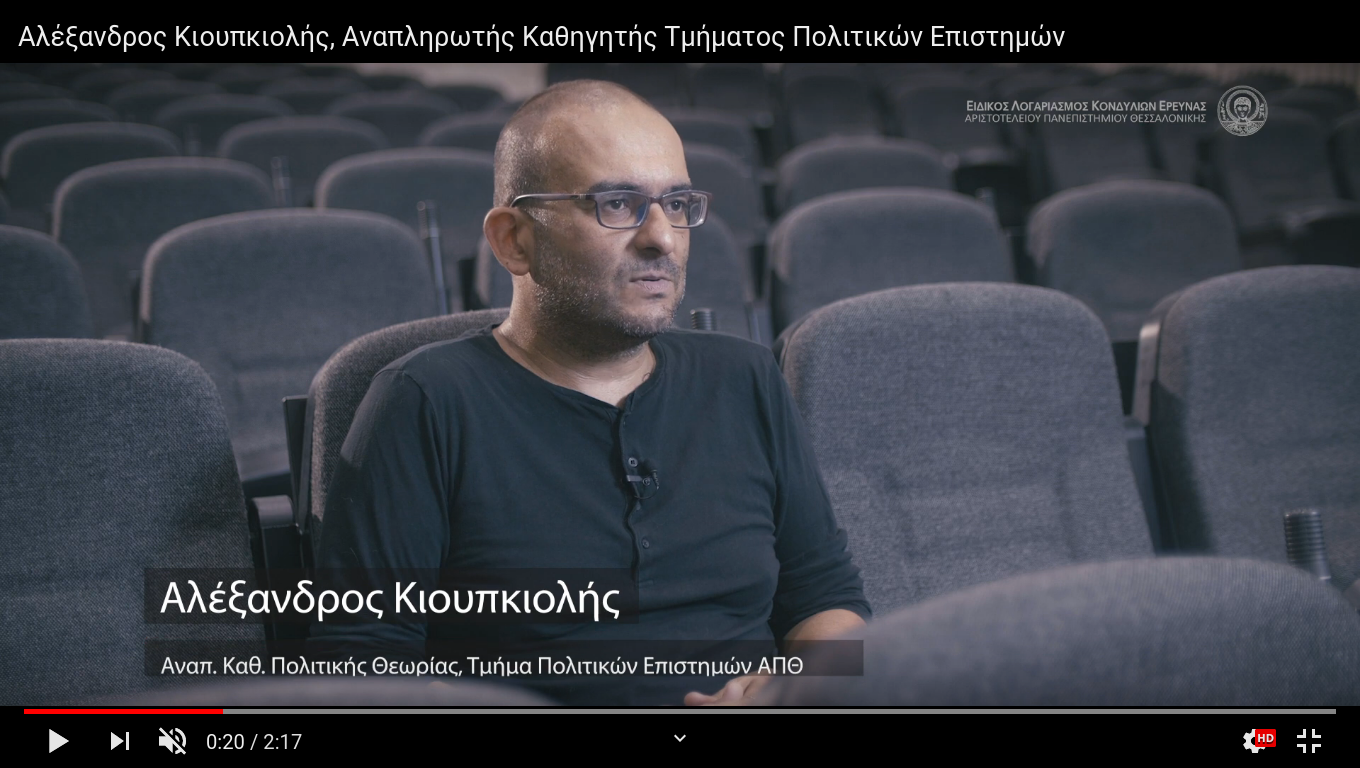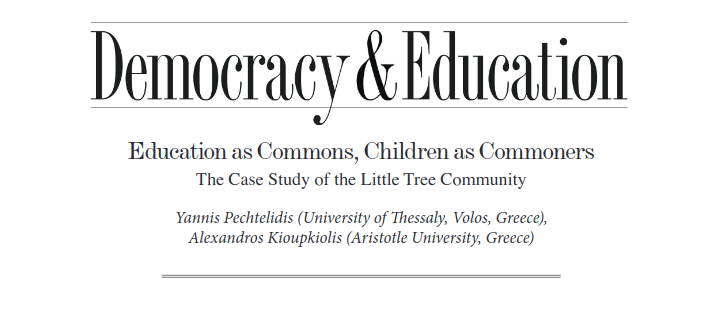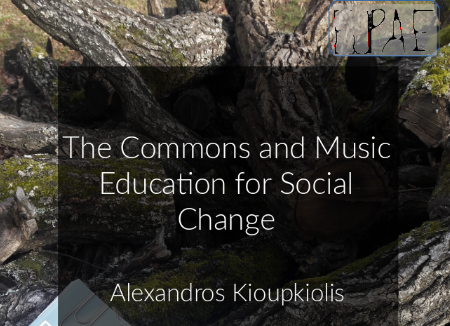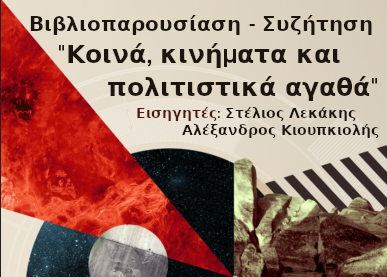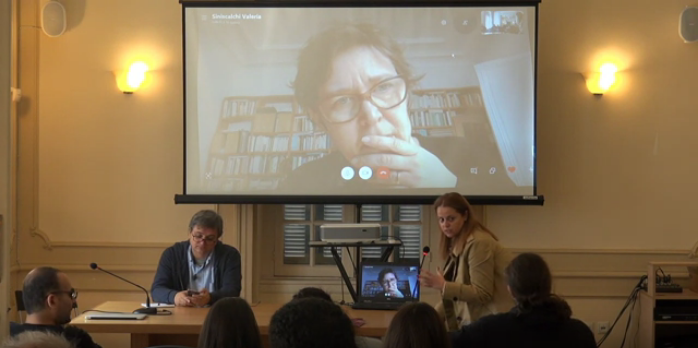In Report 2. The Common, Alexandros Kioupkiolis peruses the various strands of contemporary research and thought on the commons, or the political principle of the ‘common.’ Its aim is to elucidate how late modern theories and practices of the common(s) can inspire and energize new modes of thinking and practicing democratic politics, economy and culture, which further collective empowerment and respond to the political, socio-economic, civilizational and ecological crises of our times. The commons, that is, collective goods and aspects of social life which are produced, governed and shared in common, are critically considered in terms of their effective contribution to reimagining and refiguring democratic politics today. The object of the present report is, thus, to probe and to lay out how the commons in their diversity (environmental, cultural, technological etc.) stage an actually existing alternative to the ruling regimes of politics, economy and culture but, also, how they can provide a motor of historical transformation, which could usher in a society of ampler freedom, equality, solidarity, reciprocity, openness, diversity and care for earth.
Theoretical report on the political and alter-politics
The final Heteropolitics reports, which are the main research outputs of the project, have just been published online. Report #1. The Political by Alexandros Kioupkiolis, engages critically with the theories and practices of the commons and alternative democratic politics -‘alter-politics’ or ‘heteropolitics’- from the perspective of egalitarian, democratic and ecological transformation.
Continue reading “Theoretical report on the political and alter-politics”
Towards a commons-oriented education inside and beyond “walls”
Here’s a video presentation of Yiannis Pechtelidis’ recently published book on the commons in education (Για μια Εκπαίδευση των Κοινών εντός και πέραν των “Τειχών”), followed by a very interesting discussion on the potential of a commons-based education for a democratic transformation of the educational system and of knowledge production.
Alexandros Kioupkiolis on Heteropolitics
The Heteropolitics research project (2017-2020), which has been funded by the European Research Council (ERC), explores alternative modes of political organization at local level in Greece, Italy and Spain.
The Heteropolitics project looks at local structures of community organization as cultural spaces self-managed by citizen groups in collaboration with the municipal government and political formats by which citizen collectives run for elections and claim the right to take a more active role in municipal administration with the intent of increasing the real participation of citizens in local government. In other words, the research is focused on alternative forms of political organization at local level based on the citizens’ own initiative and on the local government, which improve everyday life and the real quality of democracy.
As Alexandros Kioupkiolis mentions: “our aim is to collect, show and spread good practices of alternative political organizations, which emerge from the bottom up in the three countries we studied. Our goal is to promote a deepening of democracy with the aim of dealing creatively with the political and social crisis”.
Education as Commons, Children as Commoners: The Case Study of the Little Tree Community
A new paper by Yiannis Pechtelidis and Alexandros Kioupkiolis, titled Education as Commons, Children as Commoners: The Case Study of the Little Tree Community, has just been published in Democracy & Education. Here’s the abstract:
This paper presents the emergent paradigm of the “commons” as an alternative value and action system in the field of education, and it critically draws out the implications of the commons for refiguring education and its potential contribution to democratic transformation. The paper delves into an independent pedagogical community, Little Tree, which is active in early childhood education and care, aiming to explore the ways in which children conduct themselves in accordance with the ethics and the logics of the commons and to show how they thereby unsettle the conventional meaning of citizenship. Proceeding from an enlarged notion of the political, the collective action of children and adults on social relations and subjectivities in their ordinary activities and intercourse in the Little Tree community are explored, and the dominant beliefs and ideas about the political ability of children are contested. This enlarged take on the political is crucial to empowering children and to enhancing their participation in public life. This pedagogical community is taken up as an instance of commoning education, that is, of configuring education as a common good, which is collectively governed by its community on terms of freedom, equality, active and creative participation.
The Commons and Music Education for Social Change
A new paper by Alexandros Kioupkiolis, titled ‘The Commons and Music Education for Social Change‘, has just been published in the European Journal of Philosophy in Arts Education. Here’s the abstract:
This paper spells out the value of an alternative paradigm of the commons for thinking social change and for refiguring education, in general, and music education, in specific. It sets out from the different strands of thought on the commons as a collaborative mode of living, acting and organizing on terms of collective autonomy, equal freedom, creativity, diversity and participation. It analyses the bearing of the various commons on contemporary music practices –horizontal work, open-source musicianship, individual experimentation, collectivized authorship- and education. Education as commons is transformed into a collective good which is co-created by all parties involved on a footing of equality, autonomy and creative freedom. Commoning music education, more specifically, would imply: an opening of music, and education in music, to any and all; a blurring of the divides between professionals and amateurs, teachers and students, producers and consumers; an endeavour to minimise unequal power relations, whereby the teacher relinquishes the role of the authority and becomes an assistant, an advisor, an animator and a facilitator; collective self-governance of educational processes; equal freedom through individual creativity, diversity, openness, collaboration, hybridity and experiment.
Commons, movements and cultural goods @ Rosa Nera
On Wednesday 19 February, Alexandros Kioupkiolis will be a guest of Rosa Nera in Chania for a very interesting discussion on the subject of the ‘commons, movements and cultural goods‘. You can find more information about the event (in greek) on the Rosa Nera website.
The alter-politics of complementary currencies: The case of Sardex
A new study of the Sardex complementary currency in Sardinia by Alexandros Kioupkiolis and Paolo Dini, titled ‘The alter-politics of complementary currencies: The case of Sardex‘, has just been published in Cogent Social Sciences. Here’s the abstract:
This paper addresses the question whether complementary currencies can help us think and practice politics in new and different ways which contribute to democratic change and civic empowerment in our times. The space created by the Sardex complementary currency circuit in Sardinia (2009-to date) seems to leave enough room for the emergence of a collective micropolitical consciousness. At the same time, the design of a technological and financial infrastructure is also an alternative political, or ‘alter-political’ choice. Both are alternative to hegemonic politics and to typical modes of mobilization and contestation. Thus, the Sardex circuit can best be understood as an alter-political combination of the bottom-up micropolitics of personal interactions within the circuit and of the politics of technology implicit in the top-down design of the technological and financial infrastructure underpinning the circuit. The Sardex experience suggests that a market that mediates the (local) real economy only and shuts out the financial economy can provide economic sustainability by supporting SMEs, supply a shield against the adverse effects of financial crises, and counteract the fetishization of money by disclosing daily its roots in social construction within a controlled environment of mutual responsibility, solidarity, and trust. We broached the Sardex currency and circuit in such terms in order to illustrate a significant and effective instance of alter-politics in our times and also to indicate, more specifically, community financial innovations which could be taken up and re-deployed to democratize or ‘commonify’ local economies.
The Social Sciences Today: Dilemmas and perspectives beyond the crisis
Two members of our research team, Aimilia Voulvouli and Alexandros Kioupkiolis, will be giving a talk on ‘New ecosystems of cooperative politics: the case of Karditsa’ at the Social Sciences Today: Dilemmas and perspectives beyond the crisis conference organized by the School of Social Sciences at the University of the Aegean in Mytilene on June 6-9. Here’s the full programme of the conference, which includes the abstracts of all talks and presentations.
Video from the 2nd day of the #otheranthropolitics workshop
Following up on our last post, here’s the video from the second day of the #otheranthropolitics workshop co-organized by Heteropolitics and the Department of History, Archaeology and Social Anthropology at the University of Thessaly in Volos on April 16, 2019.
Continue reading “Video from the 2nd day of the #otheranthropolitics workshop”
